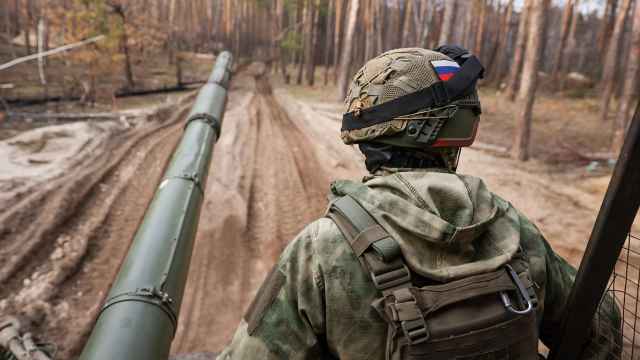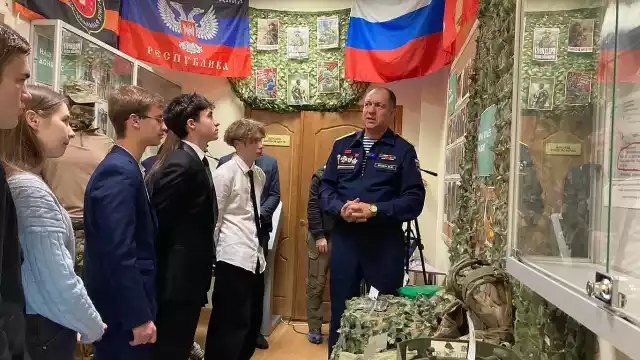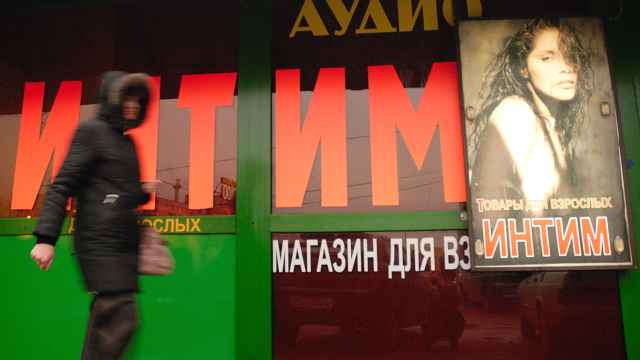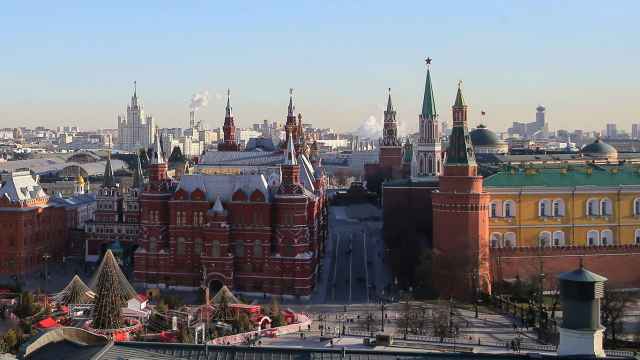The Central Bank announced Monday that it was intervening in two banks in the Samara region, following days of depositor unease over mounting payment problems in the region.
The steps come two weeks after the Central Bank withdrew the license of Master Bank, a mid-sized Moscow bank, in the most potent demonstration that governor Elvira Nabiullina is serious about cracking down on questionable banks.
Although the withdrawal of Master Bank's license has had relatively little impact on depositor confidence, it highlights a drive to weed out shaky banks in a country that has more than 900 banks, many of them small regional lenders.
The Central Bank said it was withdrawing the license and installing temporary administration at Commercial Volzhsky Social Bank, a Samara bank whose chairman was found shot dead two weeks ago.
"In connection with a loss of liquidity, the bank did not secure the timely payment of its creditors and depositors," the financial regulator said in a statement.
The Central Bank also announced that the state-backed Deposit Insurance Agency will become temporary administrator of another Samara bank, Solidarnost.
The decision was "aimed at restoring solvency at one of the largest banks of the Samara region and also at restoring confidence in credit organizations in the region," the Central Bank said.
Samara, Russia's sixth-largest city with a population of 1.2 million, is a major industrial center of a region on the Volga river that is a hub for the car and aerospace sectors.
The latest interventions appear to be an emergency response to restore confidence in the Samara region, where regional banks play a particularly important role.
On Nov. 20, the day that Master Bank's licence was withdrawn, Commercial Volzhsky Social Bank's chairman, Valery Kuchkanov, was found dead with a bullet wound to the head. Suicide was initially suspected, but police have since launched a murder inquiry.
The Central Bank said Monday that it had withdrawn the license because the bank had failed to comply with laws on minimum capital, which it said was connected with its "highly risky" lending policy.
Over recent days the financial regulator has also stepped in at some other regional banks, amid signs of financial jitters in some other Russian regions.
On Monday, Smolensky Bank, in the western city of Smolensk, requested a Central Bank loan to enable it to pay depositors. Two weeks ago the Central Bank announced that it was reorganizing the bank, and early last month the police searched its offices as part of a criminal investigation. Smolensky denies any wrongdoing.
Last week, the Central Bank withdrew the license of Naftabank in the troubled North Caucasus region of Dagestan, as it had failed to submit accounts as required and was involved in "large-scale dubious operations" for providing cash, the Central Bank said.
The Central Bank has stripped 23 banks of licenses since Nabiullina took to the helm in June.
A Message from The Moscow Times:
Dear readers,
We are facing unprecedented challenges. Russia's Prosecutor General's Office has designated The Moscow Times as an "undesirable" organization, criminalizing our work and putting our staff at risk of prosecution. This follows our earlier unjust labeling as a "foreign agent."
These actions are direct attempts to silence independent journalism in Russia. The authorities claim our work "discredits the decisions of the Russian leadership." We see things differently: we strive to provide accurate, unbiased reporting on Russia.
We, the journalists of The Moscow Times, refuse to be silenced. But to continue our work, we need your help.
Your support, no matter how small, makes a world of difference. If you can, please support us monthly starting from just $2. It's quick to set up, and every contribution makes a significant impact.
By supporting The Moscow Times, you're defending open, independent journalism in the face of repression. Thank you for standing with us.
Remind me later.





